Peace requires strength – the strength to stand up for ourselves and to persevere in support of good causes” – emphasized Defence Minister Kristóf Szalay-Bobrovniczky in his ceremonial speech delivered at the central commemoration of the 69th anniversary of the 1956 Hungarian Revolution and War of Independence held in Subotica, Serbia on Thursday, 23 October.
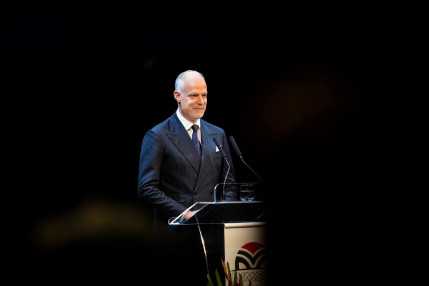
He added that “We must persevere even – and especially – when we are under strong pressure to give up our fundamental interests and values, to allow our homeland to be flooded with illegal migrants, or ourselves to be forced into a war that is not our own, a war that would involve our country and Europe as a whole.”
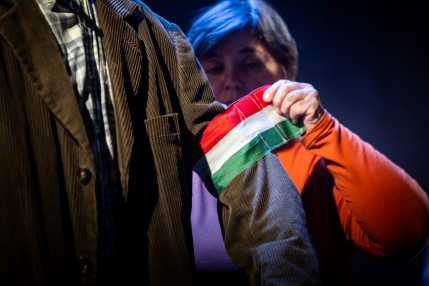
Hungary is aware of its situation. We can accurately assess our own strength, and we know that the major solutions to major problems are not in our hands – but we believe in speaking sincerely. We believe that dialogue, negotiation, and the reconciliation of interests can bridge even the deepest divides. The minister underlined that “Our voice is being heard ever farther; more and more people of goodwill are standing with us in this test of strength. We very much hope to be able to participate in establishing peace, a true peace that will bring an end to the war in Ukraine”.
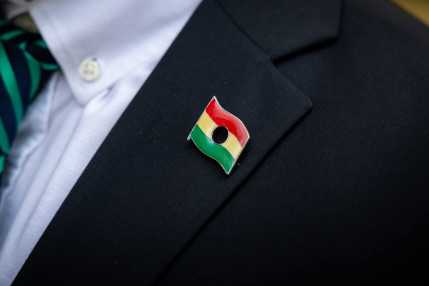
He pointed out that, as heirs of 1956, the Hungarian people “strongly believe in peace – peace that is rooted in freedom and that alone provides people with the space to live full lives.”
In his speech, Szalay-Bobrovniczky stressed that “despite all its tragedies, 1956 is a story of liberation.” He emphasized that “A nation raised its head and found a way out of the fear and oppression that had prevailed for many years, enforced by the Hungarian State Security Department’s cellar prisons and gallows. People discovered not only freedom, but also one another. From the very first moment, the dividing line was not between the political left and right, or between different ideas or worldviews, but between freedom and tyranny, between Hungarians and collaborators”. “The Hungarian nation – broken and tormented many times by the 20th century – was reborn on 23 October,” he added.
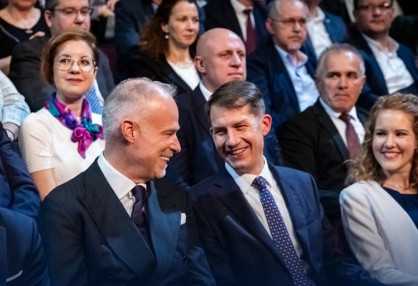
In his speech, Bálint Pásztor, President of the Alliance of Vojvodina Hungarians (VMSZ) highlighted that “the revolution of 1956 stands among the moral and historical high points of the nation; its goal was to achieve national independence and political freedoms against a totalitarian foreign communist dictatorship.”
He noted that today the Hungarian community in Serbia and Serbia itself face different challenges: these are “preserving our identity, achieving economic prosperity, and strengthening the system of democratic institutions.” The President of the VMSZ added that the Hungarians of Vojvodina are proud of Hungarian Prime Minister Viktor Orbán’s “unquestionably positive role in global politics.”
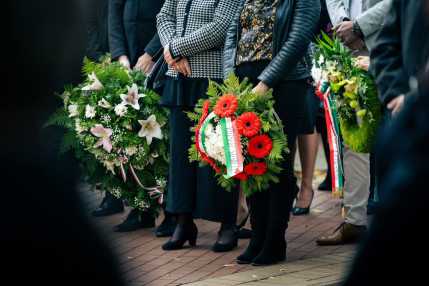
He added that “The relationship between Serbia and Hungary has evolved into a strategic partnership that now extends to the fields of defence and security policy. All this carries a message for us, Hungarians in Vojvodina as well: that a strategic friendship growing out of reconciliation is not only possible, but the only road leading to peace, stability, and development”.
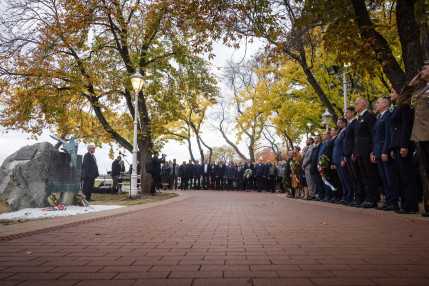
Before the ceremony, the politicians laid wreaths at the 1956 memorial in Palić, near Subotica.